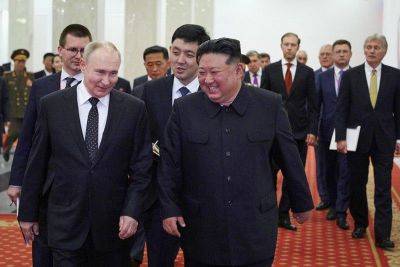Oceanic 'peace' pact signed in Costa Rica ahead of 2025 UN talks
SAN JOSE, Costa Rica — Over two dozen countries signed a wishful "declaration of peace with the ocean" on Saturday in Costa Rica, as a multi-day meeting to prepare for a major UN conference next year wrapped up.
Among the signatories were Germany, Spain, Sweden, Canada, Colombia, Chile, Israel and South Korea, as well as Costa Rica and France, co-hosts of the third UN Ocean Conference to be held next June in the French city of Nice.
"We are committed to scaling up transformative ocean actions to support nature-positive economies based on the best available science and scientific information, traditional knowledge and innovation," the document said.
About a year out from the major meeting, national representatives, scientists and international experts gathered this week in San Jose for two days of discussions to prepare for the conference.
"The ocean can no longer endure our mistreatment and indifference. That is why we in Costa Rica have decided that it is time for us to declare peace," said Costa Rican Foreign Minister Arnoldo Andre Tinoco during the event.
United Nations Under-Secretary-General for Social Affairs Li Junhua also said at the start of the "Immersed in Change" meeting that protecting the ocean was "not an option but an imperative."
The peace declaration includes a call for twelve "Ocean Actions," notably the implementation of several ocean-related international accords agreed to last year.
Those include a landmark high seas treaty that allows for the creation of marine protected areas outside of countries' exclusive economic zones.
The treaty was adopted after more than 15 years of discussions to extend environmental protections to international waters which make up more than 60 percent of the world's oceans.







